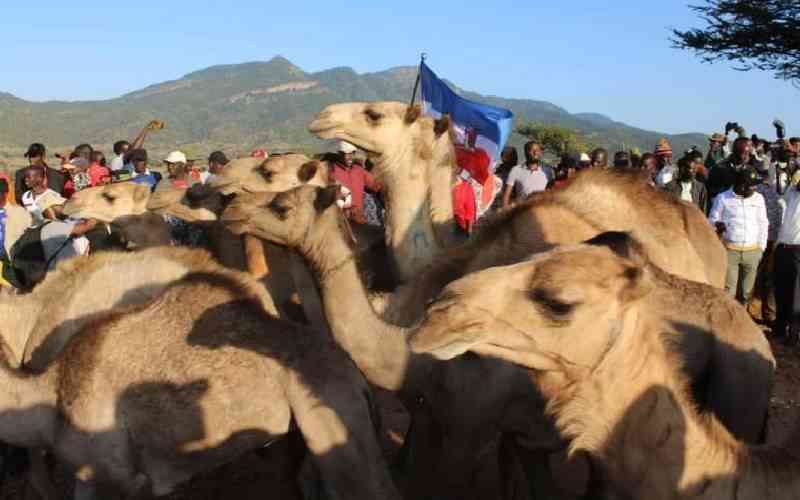The ongoing cost of living crisis in the country is affecting the way Kenyans partake in their beloved Kenyan staple that has long been considered to be immune to recession - beer.
This has emerged as East African Breweries Ltd (EABL) revealed Thursday its net profit dropped by Sh1.9 billion in the half year to December on the back of higher inflation and input costs, and as price-sensitive and broke consumers shunned the frothy drink.
EABL - which is controlled by Britain’s Diageo and is known for its flagship Tusker beer - saw its net earnings decline 22.1 per cent to Sh6.78 billion in the half-year period to December from Sh8.7 billion booked in a similar period last year.
The brewer said EABL’s Group volumes were up marginally by 2 per cent year-on-year, as inflation and higher taxes afflicted the brewer by reducing consumers’ purchasing power even as input costs jumped due to the high ingredients costs.
The rise in the cost of essential commodities has forced workers to cut back spending on non-essential items such as beer and airtime, ultimately hurting firms such as EABL and Safaricom.
EABL says multiple excise tax increases in Kenya and inflation have exacerbated consumer prices and have particularly impacted price-sensitive consumers.
Restless Kenyans want the Ruto administration to put measures in place to shield consumers and companies from the full impact of surging energy and food costs.
“Input cost inflation, currency devaluation and rising interest rates impacted profitability, partly mitigated by pricing and cost management initiatives,” said EABL.
This has forced many households, especially in the low-income segment, to reduce their shopping basket in an environment where firms have frozen salaries as they recover from Covid-19 economic hardships and confront the Ukrainian war’s global economic fallout.
“The macro environment remains challenging with GDP growth outweighed by inflation, rising interest rates and currency depreciation across the region,” said EABL.
“As a result, consumer purchasing power has been impacted leading to shifts in their behaviour towards value seeking and spend reprioritisation.”
Following the lower performance and the gloomy outlook, the Nairobi Securities Exchange-listed firm slashed its dividend by more than half to Sh1 per share, lower than the Sh3:75 paid out in the same period last year in a financial blow to its shareholders.
“The Board of Directors has recommended the payment of an interim dividend of Sh1.00 (Sh3.75) per share subject to withholding tax, to be paid on or about April 26, 2024 to shareholders registered at the close of business on February 16, 2024,” said EABL.
 The Standard Group Plc is a multi-media organization with investments in media
platforms spanning newspaper print operations, television, radio broadcasting,
digital and online services. The Standard Group is recognized as a leading
multi-media house in Kenya with a key influence in matters of national and
international interest.
The Standard Group Plc is a multi-media organization with investments in media
platforms spanning newspaper print operations, television, radio broadcasting,
digital and online services. The Standard Group is recognized as a leading
multi-media house in Kenya with a key influence in matters of national and
international interest.
 The Standard Group Plc is a multi-media organization with investments in media
platforms spanning newspaper print operations, television, radio broadcasting,
digital and online services. The Standard Group is recognized as a leading
multi-media house in Kenya with a key influence in matters of national and
international interest.
The Standard Group Plc is a multi-media organization with investments in media
platforms spanning newspaper print operations, television, radio broadcasting,
digital and online services. The Standard Group is recognized as a leading
multi-media house in Kenya with a key influence in matters of national and
international interest.










